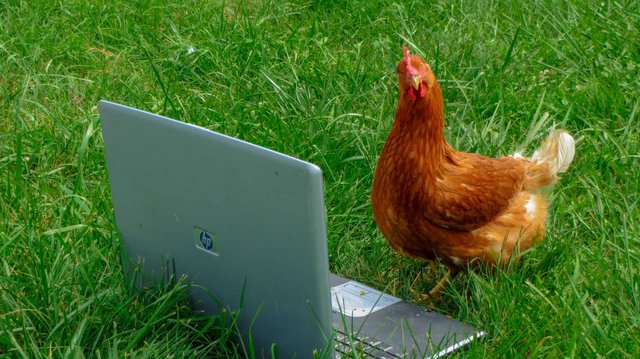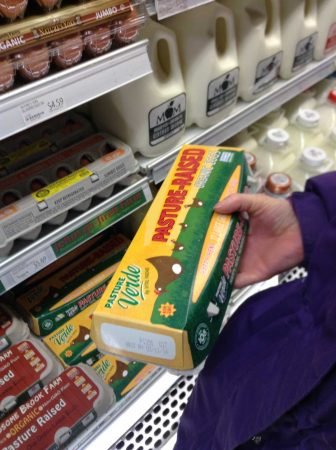
And farmers have to change with it
My grandfather milked cows by hand. Bottled the raw milk in glass bottles. Delivered said bottles to customers in the morning before school.
Today, I too deliver glass-bottled milk. But things have changed. This milk is a specialty product. I deliver couple dozen crates of milk to a grocery store, while the conventional dairy guy hauls in pallet after pallet.
The other day, I read an opinion piece in the Washington Post by a former dairy farmer. It's titled, "Dairy farming is dying. After 40 years, I'm done." The author, Jim Goodman, explained that he had sold off his herd of 45 organic dairy cows this summer. After surviving the economic calamities of previous decades, he can no longer afford to farm.
Goodman writes:
Ineffective government subsidies and insurance programs are worthless in the face of plummeting prices and oversupply (and tariffs certainly aren't helping). The current glut of organic milk has caused a 30 percent decrease in the price I was paid for my milk over the past two years. The new farm bill, signed by President Trump on Thursday, provides modest relief for larger dairy farmers (it expands some subsidies, and farmers will be able to pay lower premiums to participate in a federal program that offers compensation when milk prices drop below a certain level), but farmers don't want subsidies; all we ever asked for were fair prices.
The hamster wheel of innovation
I suggest that we stop and mull over these words a bit.
Innovation, it seems, can be a dog chasing its tail. The bigger tractor allows me to farm more ground in the same amount of time as before. But when all my neighbors also buy bigger tractors, we're now adding more supply to the market, driving down prices. The more efficient cattle-raising methods allow me to milk more cows. But when my neighbors' herds grow as well, the supply of milk drives down prices.

To put it bluntly, if prices are too low because of overproduction, then supply must drop. This, unfortunately, often means that some people go out of business.
Easy to write those few words. But those words hold the stories of men like Jim Goodman, who find that they can no longer make a living from 45 cows and end up selling the family farm. Worse, they hold the story of those who lose everything when they can no longer pay the mortgage.
I really don't want to be caustic. I have felt the pains of trying to adapt, of realizing that your current practices will never make money. I know what it's like to feel that sinking feeling that you will go under.
But I'm also tired of people denying the obvious and trying to resist change. The change may not be good, and we may not want to participate (such as spraying chemicals and using genetically modified seed). But we do have to adapt.
Subsidizing farms only prolongs the agony and puts the country further into debt. It hurts anyone who does not take the subsidies, because the subsidies allow the oversupply to continue to depress prices. If we have too much supply, then we have to either increase demand or reduce supply. Period.
Flexibility and change
I refuse to judge whether a few large farms are better or worse than a number of small farms. Time will tell. There are advantages and disadvantages both ways. I'm simply here to offer my observations.
There are many factors involved in the problem, from too-low interest rates, to too much borrowing, to cheap imports from other countries, to Americans' willingness to buy smartphones for their kids but not spend a penny extra on food. These are beyond the scope of this post, and I refuse to pretend to recognize and comprehend them all. I'm not an expert!
However, I spent 18 years farming. I learned business principles by the seat of my pants and audiobooks from the library. The challenges of farming are not unique, in reality; they are the same challenges faced by companies of every kind.
Of the 500 companies on the 1955 Fortune 500 list, only 60 remained on the list in 2017. This is due to many factors, but one truth remains: things change. Especially today, when business is changing at an ever-accelerating pace.
Business owners, including farmers, have a choice: they can continue doing what they have always done, and go out of business—or they can adapt to the changing market. Some, unfortunately, may be unable to adapt, due to financial, educational, geographical, or other such constraints. Others, however, simply ignore the changes around them until it's too late.
My own experience
When my family began producing eggs from pasture-raised hens in 2001, we had little competition. Within a few years, we had developed a cult following in the health food stores that sold our eggs. If our supply dropped, and the stores ran out of our eggs partway through the week, people would alter their shopping habits and show up on delivery day to ensure they could get their favorite eggs. The market was wide open.

Our eggs (middle shelf) along with a couple other brands of pastured eggs. (2016)
But over the last ten years, larger companies have entered the pastured egg market. Vital Farms, Pete and Gerry's, Handsome Brook, Nature's Yoke—they all began offering their own pastured eggs on a much larger scale than ever seen before. Fortunately for my family, our loyal customers continued buying our eggs, even as the other brands made their way onto neighboring shelves. However, from my vantage point as we enter 2019, I see little room for newcomers. In fact, both Vital Farms and Handsome Brook have had to scale back production (or at least curtail new production) as the market became saturated.
We raised meat chickens and turkeys for 15 years. In the mid 2000's, they practically sold themselves, and we had to restrict production to what we could handle. But by 2015, our sales were shrinking, as fewer and fewer people chose to drive all the way out to the farm to buy chicken once a month. It was easier to buy an organic bird at the health food store, or order from the (illegal) buying club drop point of a better-known farm that delivered close to them.
So, at the end of 2015, we quit raising turkeys and chickens, and focused on producing eggs.
We had to adapt.
The world is changing, and everyone must change, too
I don't tell this story to pat ourselves on the back. The point is simply that what worked well 15 years ago may be the wrong thing to do today. Regardless of how we may think that things should work, we have to operate in the environment we live in.
And so, I respectfully disagree with Jim Goodman. Farming, in my opinion, isn't dying. Certainly, many farms are going out of business. But there is no lack of food, and we are not in danger of starvation—unless, of course, an economic disaster begins wiping out the huge, debt-laden farms that remain.
Instead, I think it's better to say that farming is changing. Those who can adapt to the changing economic climate will survive. This may not mean changing production models, but instead marketing in a new way, to a different clientele. It may mean convincing people to reject products that come from large farms and instead to buy from small, local farms. It may mean finding a different way to distribute product.
It definitely means that every farmer needs to be a good businessperson and pay attention to what is going on. It means that we have to recognize that the all-too-true phrase, "Behind every successful farmer is a wife who works in town", is both unsustainable and economically stupid. It means applying real business sense to the farm and eliminating or changing things that are unprofitable.
For in the end, it doesn't matter how wonderful a company is, or how valuable their service is to humanity, if it isn't sustainable.
In the wise words of Herbert Stein: "If something cannot go on forever, it will stop."
Posted from my blog with SteemPress : http://www.joelhorst.com/2018/12/29/farming-isnt-dying-its-changing/
Indeed farming is changing and as farmer's we must go with the flow and change with it.... thanks for enlighten us.
Resteem
Downvoting a post can decrease pending rewards and make it less visible. Common reasons:
Submit
Congratulations @joelhorst! You have completed the following achievement on the Steem blockchain and have been rewarded with new badge(s) :
Click here to view your Board
If you no longer want to receive notifications, reply to this comment with the word
STOPDownvoting a post can decrease pending rewards and make it less visible. Common reasons:
Submit
Hello @joelhorst! This is a friendly reminder that you have 3000 Partiko Points unclaimed in your Partiko account!
Partiko is a fast and beautiful mobile app for Steem, and it’s the most popular Steem mobile app out there! Download Partiko using the link below and login using SteemConnect to claim your 3000 Partiko points! You can easily convert them into Steem token!
https://partiko.app/referral/partiko
Downvoting a post can decrease pending rewards and make it less visible. Common reasons:
Submit